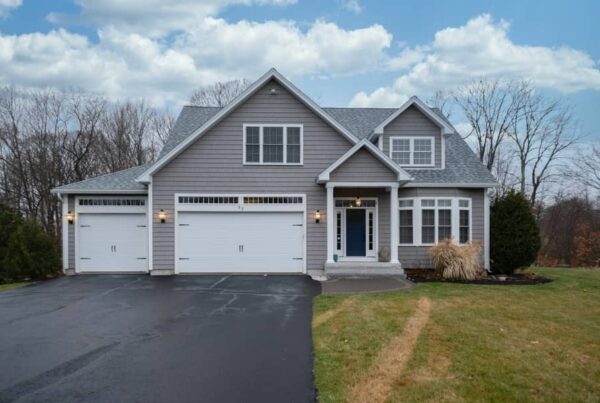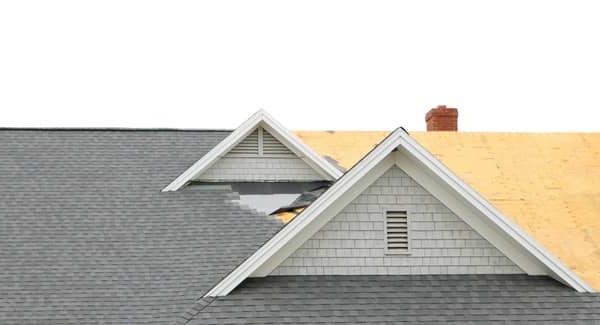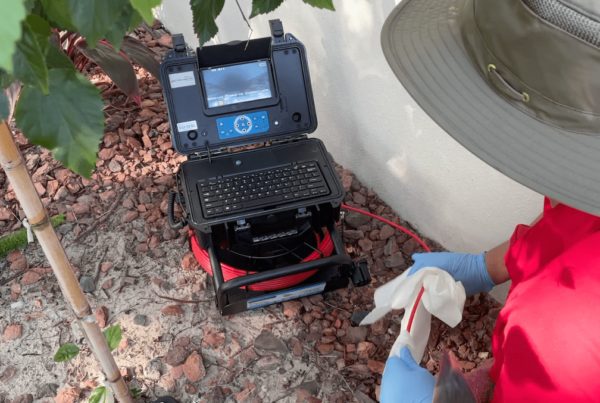
A home inspection is one of the most important parts in any real estate transaction. Home Inspections help buyers understand what’s going on with a property before they actually purchase it. Without it, buyers risk buying a property that needs a lot of repairs which can cost lots of money.
Let’s get into what a home inspection is, what it includes, how it works, how much it costs, and other common questions we hear every day.
What Is A Home Inspection?
A home inspection is an independent evaluation of a property and its structure. Typically, this is requested during a real estate transaction, but not always.
A homeowner could request a home inspection just to see what is going on with their property. On the other hand, we see sellers ordering pre-listing inspections to help sell their homes for top dollar.
In the most common scenario though, homebuyers hire licensed home inspectors to evaluate the property’s condition, report on the general condition, and recommend specialized contractors where needed.
What Does A Home Inspection Include?
In most cases, a home inspection includes an evaluation and report of findings on the following:
- Exterior
- Grading
- Structure
- Roof
- Attic
- Interior
- Plumbing
- Electrical
- HVAC
- Appliances
- Safety Issues
What is included in the home inspection can vary slightly by inspector, however, most inspectors follow the American Society of Home Inspectors (ASHI) Standards of Practice or the International Association of Certified Home Inspectors (NACHI) Standards of Practice.
Waypoint Property Inspection follows the NACHI standards or practice. View A Sample Home Inspection Report.
What Is Not Included?
Home Inspections are not code inspections and are not always the same. Check with your inspection company to see specifically what is and is not included.
Most home inspectors charge extra for the following:
Most home inspectors do not include:
- Cosmetic Defects.
- Outbuildings – unless specifically requested.
- Cable Systems, Antennas, & Alarm Systems.
- Home components they cannot see or reach safely.
- Quotes for repairs.
- Anything other than visual, non-invasive, or technically exhaustive inspections. For example, a home inspector would not take apart an air conditioner or move personal items to reach an electrical panel.
We recommend using our home inspection checklist during your home inspections to ensure everything important to you is covered. Read more about limitations.
How A Home Inspection Works
As mentioned previously, most home inspections occur during a real estate transaction. For the sake of this post, we are going to focus on those instances.
When a home buyer finds a home they like, they submit an offer for purchase. Once an offer is accepted on a home, the homebuyer typically has a 5-7 day period to complete any inspections they may need. (The inspection period can vary depending on market conditions). One of those inspections is the home inspection.
Home buyers then hire a home inspector to evaluate the property during the inspection period. We recommend consulting with your real estate agent or looking at online reviews to find a home inspector.
During the inspection, sellers typically vacate the property to leave the home buyer, home inspector, and buyer’s agent alone.
On average, a home inspection can take 2-3 hours, after which, the home inspector shares their findings with the homebuyer and buyer’s agent. The home inspector then produces a report for the home buyer. Home inspection reports are typically delivered the same day or next day.
Finally, the home buyer and buyer’s agent may be able to make requests for repairs or open negotiations based on home inspection findings that were not previously disclosed in the contract, such as a leaking roof. This can lead to a home inspection contingency.
In some cases, a reinspection may be needed to ensure repairs were completed properly. After that, the inspection process is complete.
How Much Does It Cost?
The national average for a basic home inspection is a little over $350. However, most home buyers should expect to pay more than this if they need additional services, such as radon testing, mold testing, or insurance-specific inspections like the four-point or wind mitigation inspections.
We created a helpful article on how much a home inspection costs and why here. Our average inspection fee is a little over $430, but you can estimate yours on our pricing page.
As a general rule of thumb, the more you pay for an inspection, the more experienced inspector you are getting.
Other Common Questions
Lastly, let’s get into other common questions we hear.
Home Inspection Vs An Appraisal
A home inspection and appraisal are both ordered during the inspection period. However, an appraisal is when a licensed appraiser gives an unbiased opinion of a home’s value. An inspection of a home does not report on the property’s value, only on deficiencies, safety issues, and life expectancies of major components.
Learn more about how an appraisal works and how much it costs.
Does The Homebuyer Have To Attend?
No, they do not. A home buyer may just review the final written report. However, we highly recommend home buyers attend inspections so they can ask questions!
Does The home seller Have To Leave The Property During The Inspection?
Technically, no. However, most home sellers want buyers to feel comfortable, so they choose to leave for the inspection’s duration.
The Bottom Line
A home inspection is an independent evaluation of a home by a licensed home inspector. It is typically requested during a real estate transaction, but not always.
If you have additional questions about inspections, comment below.



